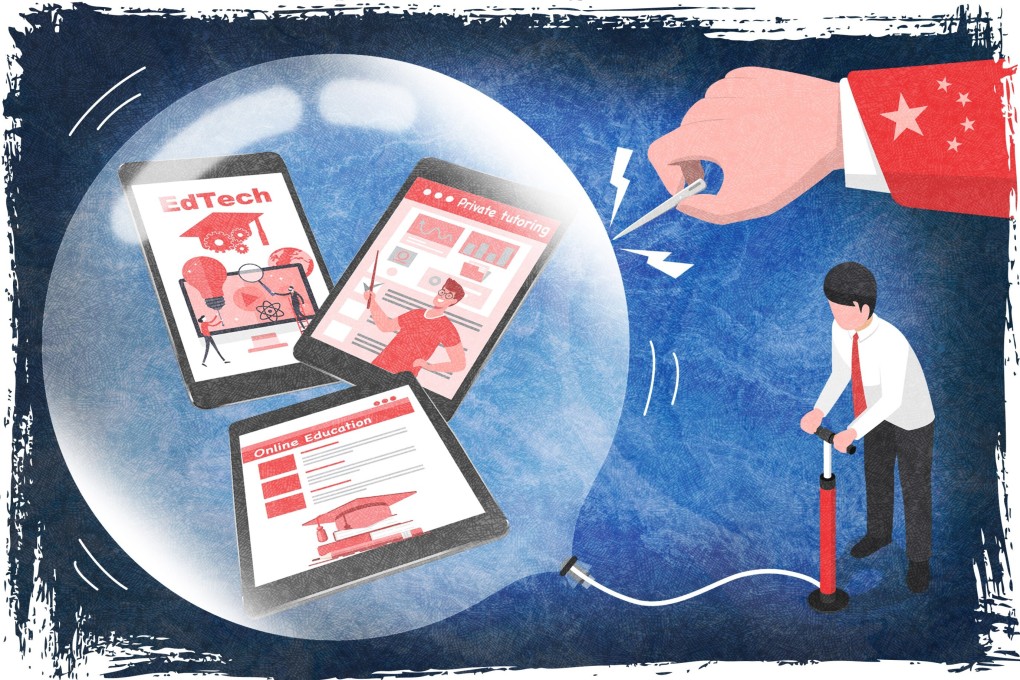What’s the end game for China’s crackdown on private tutoring? Beijing wants a fair and sustainable society
- The growing necessity for private tutoring challenges Beijing, as it represents a disruption to the country’s state education system
- Beijing’s grand plan to revamp the country’s education system is one piece of the Chinese leadership’s bigger goal to engineer a fairer society

In the second part of a series exploring China’s recent moves against the technology industry, Coco Feng and Jane Zhang look at the surprise crackdown on edtech.
Huang Yu, a mother of two in Shenzhen, spends about 80,000 yuan (US$12,350) per year on after-school tuition classes for her nine-year-old son and four-year-old daughter for traditional subjects like English and mathematics, as well as computer programming, painting, piano, football and even basic engineering with Lego.
Huang’s tuition budget, nearly double the average annual salary of urban Chinese workers in 2020, is beyond most of the country’s households with an annual disposable income per capita of about 32,189 yuan.
But for Huang, every cent spent on her children is necessary in China’s youngest and most competitive city.
Not only does Huang rely on after-school classes to look after the kids while she and her husband work at their consumer electronics exports business, she has also pinned her hopes on the training programmes to help her children outperform their peers in future exams and entrance interviews.
For Huang, Beijing’s ban has deprived her of the convenience and advantage of training centres.